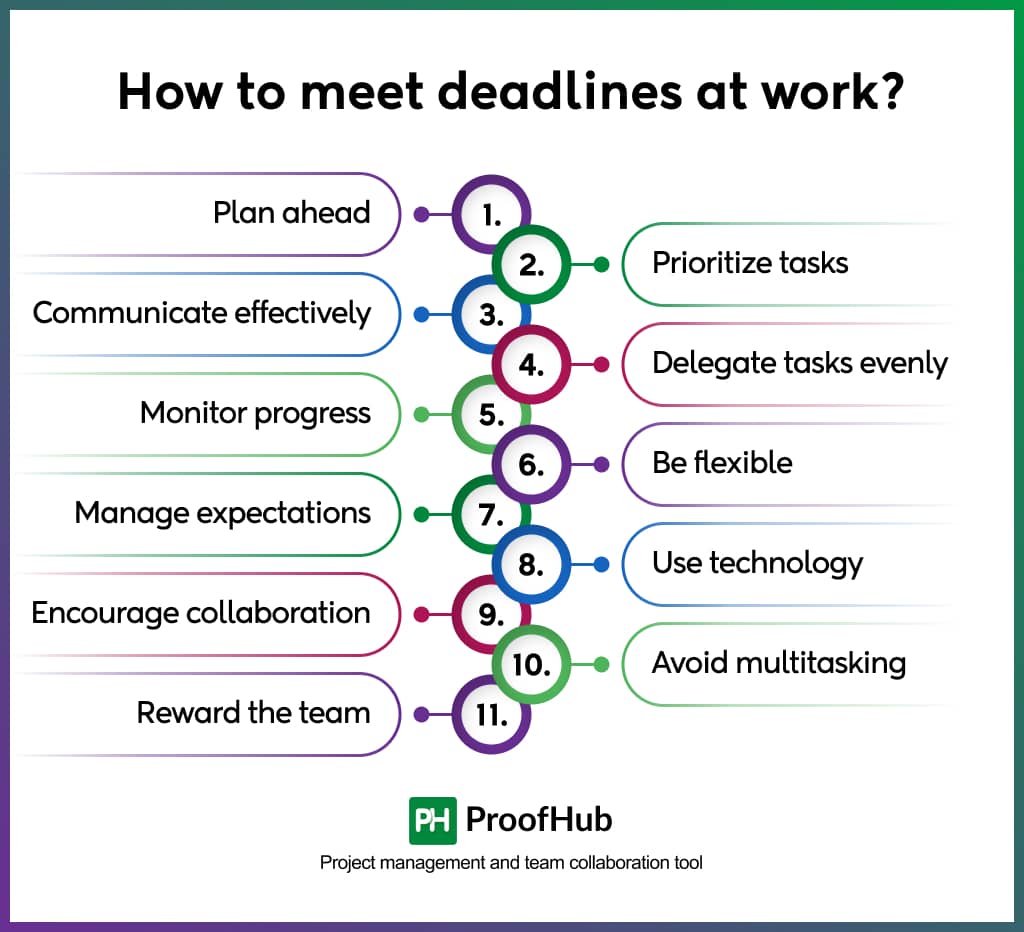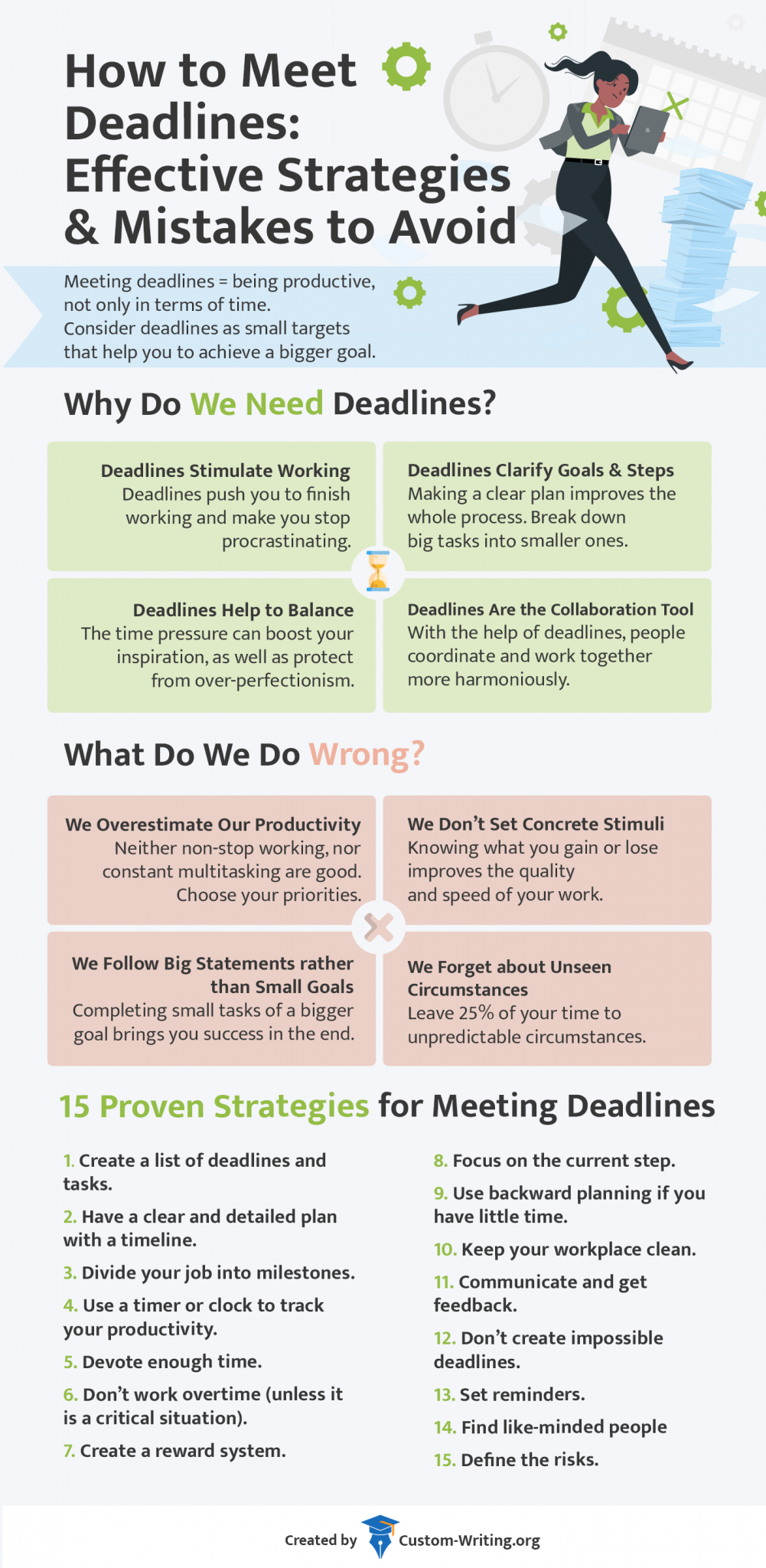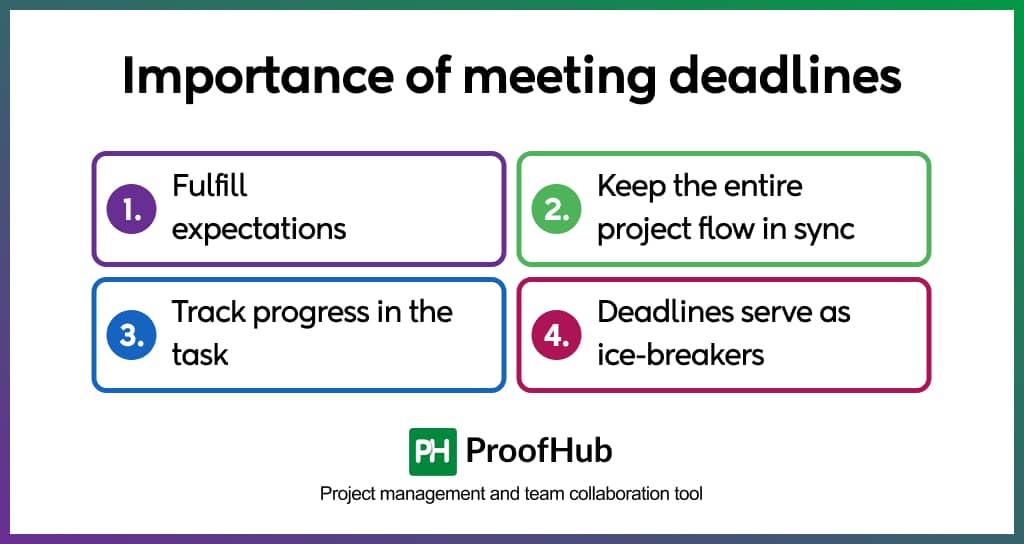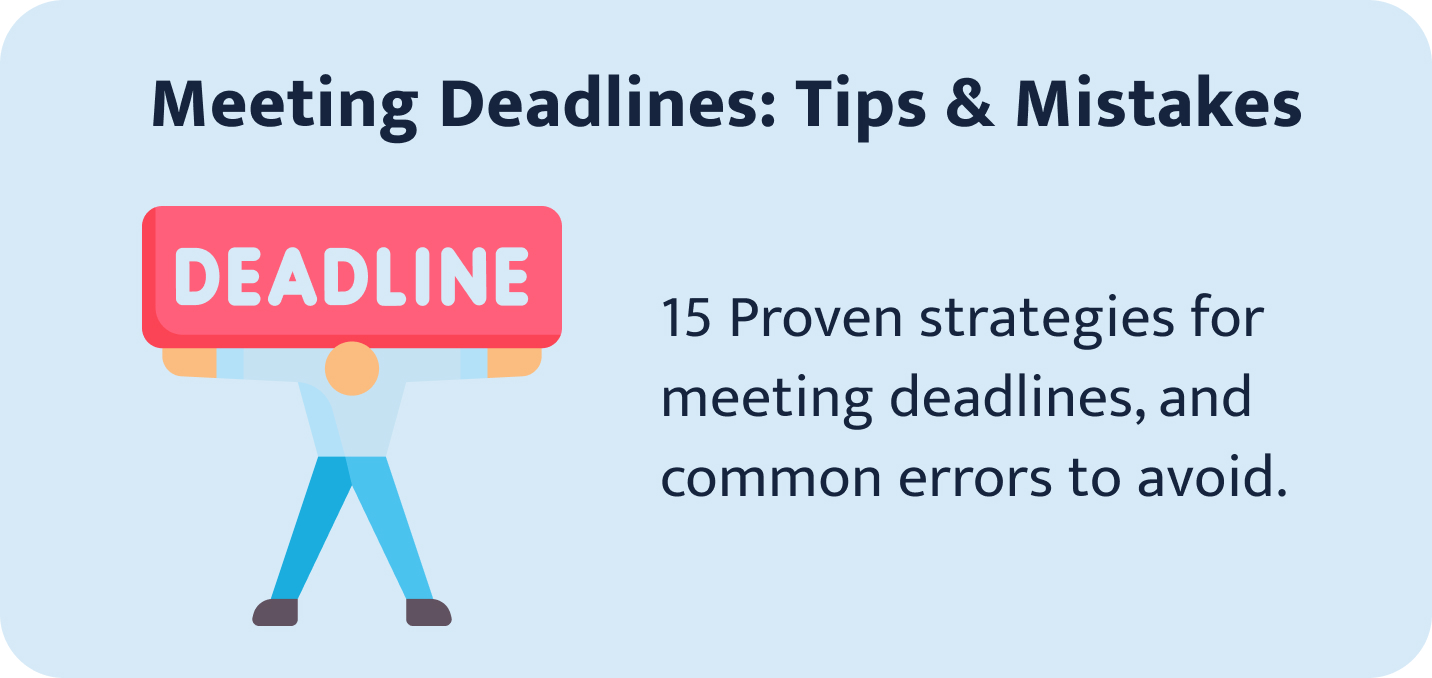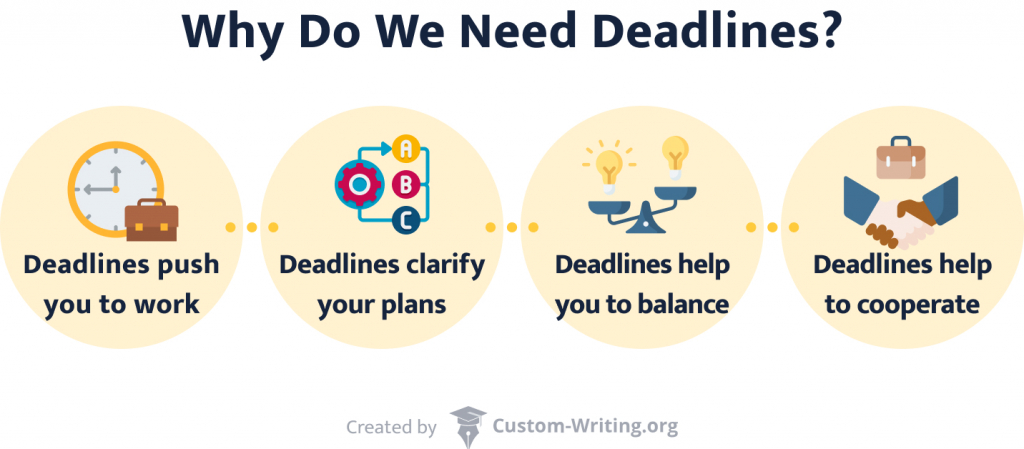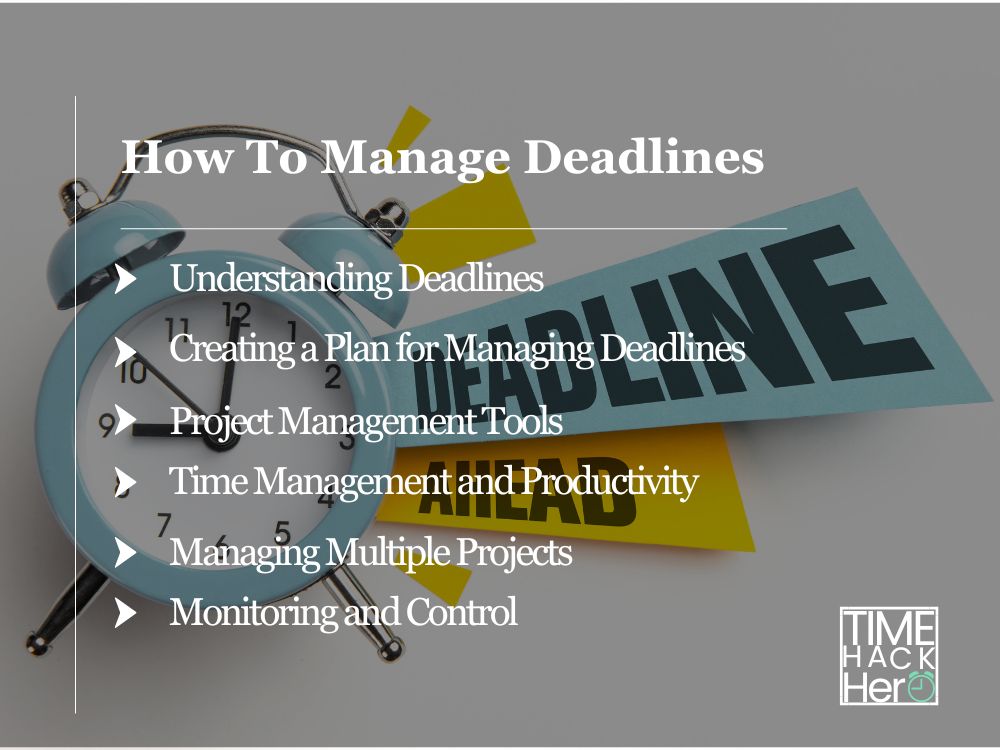Importance Of Meeting Deadlines At Work

In today's fast-paced business environment, the relentless pressure to deliver results on time is a constant reality for professionals across all industries. Missed deadlines can trigger a cascade of negative consequences, rippling through teams, organizations, and ultimately, impacting the bottom line.
Understanding the critical importance of meeting deadlines and implementing effective strategies to achieve them is paramount for individual success and organizational prosperity.
The Ripple Effect of Missed Deadlines
At its core, consistently meeting deadlines is about demonstrating reliability and competence. When deadlines are missed, it erodes trust within teams and between departments.
This can lead to strained relationships and a decline in overall team morale, according to a 2022 study by the Project Management Institute (PMI).
Furthermore, delayed projects can have serious financial implications. A survey conducted by Deloitte in 2023 revealed that missed deadlines contribute significantly to project cost overruns and lost revenue opportunities.
The reputational damage of failing to deliver on time can be equally detrimental, particularly for companies that rely on client satisfaction and referrals.
Impact on Team Dynamics
When one team member consistently misses deadlines, it often places an undue burden on others. This can lead to resentment and burnout among those who are forced to pick up the slack.
According to research from the Harvard Business Review, a culture of missed deadlines can also stifle innovation and creativity, as team members become more focused on damage control than on generating new ideas.
Effective communication and clear expectations are crucial for preventing these negative impacts.
Consequences for the Organization
Beyond the immediate impact on project timelines and budgets, missed deadlines can have wider strategic implications for the organization. Delays in launching new products or services can give competitors a crucial advantage, eroding market share and profitability.
A report by McKinsey & Company highlights that organizations with a strong track record of on-time delivery are more likely to attract and retain top talent, as employees are drawn to a culture of accountability and achievement.
Moreover, consistent failure to meet deadlines can damage an organization's credibility with investors and stakeholders, leading to reduced funding and diminished opportunities for growth.
Strategies for Deadline Success
While the consequences of missing deadlines are significant, there are several strategies that individuals and organizations can implement to improve their track record. First and foremost, realistic goal setting is essential.
Break down large projects into smaller, manageable tasks with clearly defined deadlines for each. This allows for better progress tracking and early identification of potential roadblocks.
Utilizing project management tools and techniques can also be invaluable. Software platforms like Asana, Trello, and Jira can help teams stay organized, track progress, and collaborate effectively.
Effective Time Management
Individuals can improve their time management skills through techniques like the Pomodoro Technique, time blocking, and prioritizing tasks based on their importance and urgency.
The Eisenhower Matrix, a popular time management tool, helps individuals categorize tasks into four quadrants: urgent and important, important but not urgent, urgent but not important, and neither urgent nor important.
By focusing on tasks in the first two quadrants and delegating or eliminating tasks in the latter two, individuals can better allocate their time and energy to the most critical activities.
The Role of Leadership
Organizational leaders play a crucial role in fostering a culture of accountability and on-time delivery. Effective leaders set clear expectations, provide adequate resources, and empower their teams to take ownership of their work.
Regular progress reviews and feedback sessions can help identify and address potential issues before they escalate into missed deadlines. Leaders should also recognize and reward individuals and teams who consistently meet their deadlines, reinforcing positive behaviors.
Looking Ahead
As the pace of business continues to accelerate, the ability to meet deadlines will only become more critical for success. Organizations that prioritize effective project management, time management, and communication will be best positioned to thrive in this increasingly competitive environment.
Embracing new technologies and methodologies, such as Agile and Lean project management, can further enhance an organization's ability to deliver projects on time and within budget. The focus must shift from simply meeting deadlines to fostering a culture of efficiency, accountability, and continuous improvement.
By investing in these areas, organizations can not only minimize the negative consequences of missed deadlines but also unlock new opportunities for growth and innovation.
